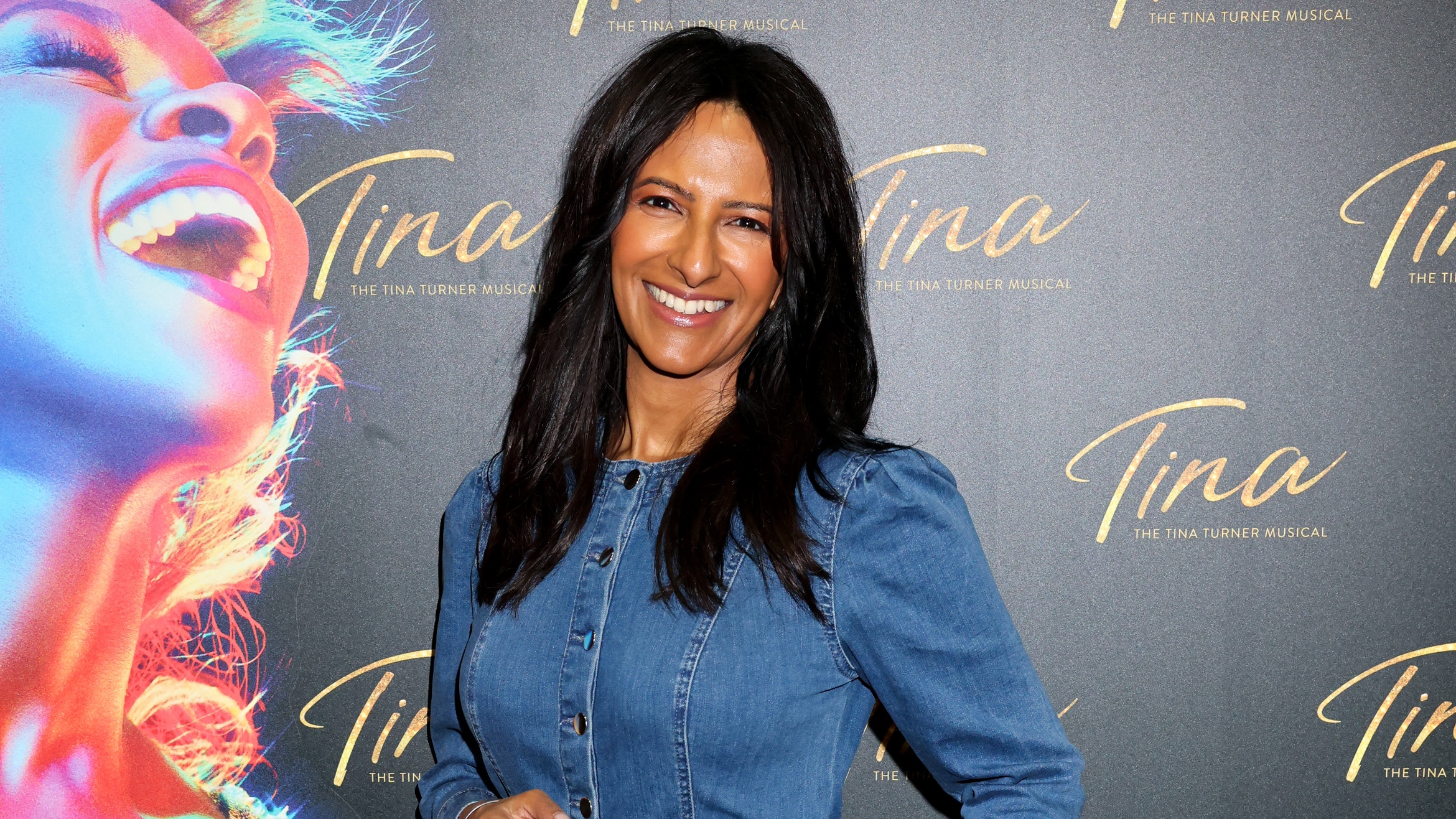Working out but not losing weight? Here's how to break your weight loss plateau through exercise
If you're working out but not losing weight, you may be in a weight loss plateau. Here, three experts explain how to break it


Working out but not losing weight is one of the most frustratingly common stages in a healthy weight loss journey. While we’re told that exercising regularly and maintaining a good diet are the two essentials, there’s one thing that can stop any progress in its tracks.
After a while, everyone who is trying to lose weight experiences a weight loss plateau. This is essentially where your body catches up with itself and notices that there’s less fat (and muscle) to burn than before, so you need to work a little harder to achieve the same results.
There are so many benefits to exercise other than weight loss but if you’re working out and dieting but not losing weight, it can be pretty discouraging. If you want to know how to get back into a calorie deficit, this is what a nutritionist, doctor, and personal trainer have to say about beating the plateau for good.
Why am I working out but not losing weight?
There are many factors that go into this but if you have been working out and seeing results up until now, then you could be in a weight loss plateau. As a report by Nassau University Medical Center outlines, those new to exercising and dieting tend to lose weight quickly in the first few weeks once they're in a strong calorie deficit. When your body starts to adjust to this new intake, however, weight loss stalls.
"This plateau is where someone who is trying to lose weight hits a brick wall with their progress and stops losing weight," explains Simone Thomas, a nutritionist and wellness coach. "It's common and while it's something that happens to pretty much everyone, many people are surprised when it does and it can cause frustration, but don’t give up."
"Quite often weight loss will be fast at the start of a new way of eating and exercising, but over time this will slow down. Changes will be needed and new goals will need to be set if you are to continue to see change," she says.
If you haven't been seeing any progress even though you've been exercising regularly, then it's likely you weren't in a calorie deficit to start with. While there are an endless number of diets you can follow to achieve this deficit, studies from the University of Vienna and Seoul National University Bundang Hospital among others show that burning more calories than you eat every day is the only way to lose weight. Unfortunately, no matter whether you’re walking for weight loss or hitting the gym every day if you’re consuming too many calories compared to the number you’re burning, the results aren’t going to come.
Sign up for the woman&home newsletter
Sign up to our free daily email for the latest royal and entertainment news, interesting opinion, expert advice on styling and beauty trends, and no-nonsense guides to the health and wellness questions you want answered.

What is a weight loss plateau?
A weight loss plateau is when you stop losing weight even though you’re following the same diet and exercise routine that’s previously helped you lose weight. It’s perfectly normal and happens to everyone, level 4 personal trainer and weight loss specialist Luke Hughes says. “When you start to reduce your caloric intake and start to exercise the body burns glycogen, which is energy stored in fat reserves in the muscles and liver,” he explains.
As you lose weight, you also lose some muscle along with fat mass. Muscle is essential for keeping your metabolism, the rate at which you burn calories, up. “So as you decrease in weight, if you don’t build muscle mass to replace it then your body doesn’t have to work as hard to complete the same exercises,” Hughes, who is also the CEO and co-founder of Origym, says. As your body also isn’t working with the same amount of fat anymore, which provides additional resistance, you burn fewer calories than you did at your heavier weight. This is when you enter what is called a weight loss plateau, as your body has adjusted to your lower calorie intake. What used to be your deficit is now your maintenance calorie level.
To break this plateau, the simplest thing to do is lower your calorie intake and do more exercise. However, over-exerting yourself and crash dieting to try and lose more weight is not sustainable and it's one of the biggest weight loss mistakes you can make. Here’s how to break the plateau and get back on track in the longer term.
How to break a weight loss plateau through exercise
1. Build more muscle
If you want to beat your weight loss plateau through exercise, rather than dieting, incorporate some strength training into your program to help build more muscle. "This is one of the biggest reasons people plateau in their weight loss," says Hughes. "They're not building enough muscle mass to push the body."
Otherwise known as resistance training, strength training includes exercises like Crossfit, weightlifting, and some forms of HIIT training. It pushes muscles into fatigue, forcing them to grow, he explains.
You'll see changes early on if you do this, but the changes will be physical rather than on the scale. "Muscle weighs more than fat so it will burn calories and help you reduce your size without the scale budging," he says. "If this is an issue for you and you want to check that you're definitely coming out of your plateau, make sure you start to measure body fat composition or take measurements instead of just stepping on the scale."

2. Ensure you progressively overloading in your workouts
When it comes to working out but not losing weight and ditching the weight loss plateau for good, your workouts, unfortunately, have to get harder - at least for a while. "If you’ve started running for weight loss then you need to make sure you’re setting yourself regular goals and increasing your distance or intensity," says Hughes. "You will hit a plateau as your body adapts to certain conditions and your muscles get used to a certain intensity and distance so don't get too comfortable."
Setting new goals is a great way to build more muscle as you're forcing yourself into harder physical exercise, which burns more calories, and so this will naturally pull you out of the plateau.
"If you’ve been running a 5k start trying to hit 6, then 7, and scale it up as part of your weight loss program. You need to be working hard enough to push yourself otherwise you’ll be maintaining rather than losing weight," he suggests.
3. Include more activity in your daily life
If you want to kick the weight loss plateau once and for all, nutritionist Simone Thomas says, you'll need to include more exercise in your life generally. But it's unlikely that you'll have the time (or the energy) to spend hours in the gym, so increase your step count and take a long way home to include that extra bit of exercise.
"Try to simply be more active, be that taking the stairs at work or really going for it when you're moving around the house. It is easy to feel tired and want to rest, but actually, the best thing you can do for your body, your mental health, and your weight loss is to be physically active during the day," she says.

4. Keep eating
If you're not losing weight in a calorie deficit and have hit a weight loss plateau, you might think that restricting calories and cutting out particular food groups will help you shift the scales, but this is far from the truth, says Thomas.
Instead, take a look at what you're eating now and make sure you're eating to meet your health goals. "Keep a diary of what you eat and when, then just make sure you're getting a good balance of fruit, vegetables, healthy fats, and protein. This will not only keep you full and stop you from snacking but also fuel your metabolism," she says.
5. Check your hormone levels
Hormones play a huge role in how our body gains or loses weight, explains women's health specialist and wellbeing general practitioner Dr Houda Ounnas. If you are more stressed than usual, your body will go into fight or flight dynamics due to stress. Your body doesn’t differentiate between modern-day stress or you being chased by a lion or going into famine so the last thing it’ll want to do is lose weight. It would like to hoard fat instead, so you have a reserve in case of famine," she says.
As well as stress hormones, hormones produced by the thyroid have an impact on our weight as they regulate our metabolic rate. When the body can't produce enough of these hormones, we develop a condition called hypothyroidism, a study by Erasmus University Medical Center explains, and this can cause weight loss to slow down significantly.
To ensure your hormones are sitting at healthy levels, get a health assessment, Dr Ounnas advises. "Ensure your hormones are in check by possibly getting a health assessment to check your thyroid and your sex hormones. Some specialized clinics also offer insulin and cortisol levels too. All of these hormones can sabotage your weight progress so discuss this with your doctor and get the relevant blood tests done."
6. Take a break
If none of the above work and you're still working out but not losing weight, then it's best to shake things up entirely but taking a break and trying something else. If you're a devotee of HIIT workouts then it might be time to try some LISS cardio, for instance.
"Your body will be taken by surprise and it might react to the change," says Dr Ounnas. "Focus more on macros than calories. For example, the same number of calories can be eaten in protein and fat rather than carbohydrates, and this in turn will help by reducing the insulin response, which in itself affects weight loss."

Grace Walsh is woman&home's Health Channel Editor, working across the areas of fitness, nutrition, sleep, mental health, relationships, and sex. She is also a qualified fitness instructor. In 2025, she will be taking on her third marathon in Brighton, completing her first ultra marathon, and qualifying as a certified personal trainer and nutrition coach.
A digital journalist with over seven years experience as a writer and editor for UK publications, Grace has covered (almost) everything in the world of health and wellbeing with bylines in Cosmopolitan, Red, The i Paper, GoodtoKnow, and more.
-
 Celebrities who overcame scandal and came back stronger than before - from Jane Fonda to Martha Stewart
Celebrities who overcame scandal and came back stronger than before - from Jane Fonda to Martha StewartScandals, controversies and fallouts can really harm a celebrity's reputation, but these stars proved there's power in putting in the work for a second shot
By Jack Slater Published
-
 Ranvir Singh’s denim midi dress is perfect for April date nights
Ranvir Singh’s denim midi dress is perfect for April date nightsYour favourite jeans will always be an easy outfit staple but denim dresses have the same comfort factor and more elegance.
By Emma Shacklock Published